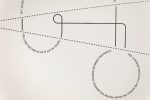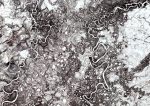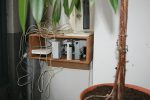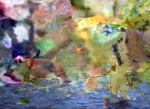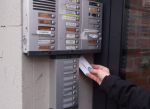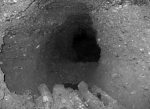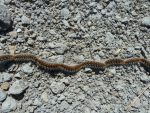Zone Public contributes to an ongoing conversation on the dynamics of publishing generated by technologies of artistic research. From January 2020 onwards, within the a.pass platform for artistic research practices -where its agents continuously re-examine and re-imagine this special form of knowledge production, specifying over and over again its generative nature and deploying its potential- a three month series of readings, mediations and compilations is oriented by the postgraduate program and its participants to (re)consider the forms and conditions for disseminating artistic research.
In the context of a.pass, the field of artistic research is one to be embodied but also to be explored, discussed and ultimately transversally invented. Instead of a discipline, a.pass considers artistic research as an inclusive library of heterogeneous, impermanent, precarious yet rigorous constructions and affirms that only as a non-discipline, un-discipline or de-discipline can artistic research create the conditions for multiple sites of intersection between society, academia and art. Methodological conflicts, critical discursive inventiveness and continuous experimentation with tentative sub-categories, all are generatively interconnected through hybrid artistic and research practices. Thus, Zone Public wants to closely observe and document the sources, contexts, dynamics, compositions and especially the modes of publicness of the multiple and diverse art and research projects conducted in the post graduate program. The different participatory dispositifs initiated by Zone Public are situated in this specific context, where artistic research is modulated as a topological object to articulate the ways in which artistic practice, theory, history and other disciplines intersect and combine in unique ways in each artistic research projects and trajects.
Nevertheless, to consider these diverse artistic researches as singular assemblages, as effects but also as proposals for new combinations implies navigating a space where the separation between what is discrete and continuous is reduced. Thinking/doing, writing/publishing, researching/performing, speculating/archiving, containing/executing, exploring/presenting, disagreeing/collaborating, emancipating/determining… Zone Public wants to question these polarities and tries to articulate a relational material that supports, binds and maintains both the discrete and the continuous scales of a non-uniform zone of artistic research in tension with its publicness.
Especially, Zone Public invites to (re)consider the conditions for dissemination of the specific forms of knowledge that artistic research does produce/process/practice. It activates the interrelation between research-as-process versus the crystallisation that publishing requires, and wants to open up the exhibitionary regimes which seem to articulate current artistic research practices and the infrastructures of knowledge production that its agents are both using and possibly used by.
What happens to research when it is made public? How to deal with the apparent dichotomy between research and publicness? What are the ways to manage the (im)possible task of (re)presenting something as hybrid and liquid as a research process? How to produce legible forms out of unformed research matters? How to understand publishing beyond legitimisation and validation? What relations emerge from the determining norms of institutional or academic forms of publication? What to expect from the transfer of research to audiences and what would be, for both agents, useful to know? What could be the definitions and practices of spectatorship for artistic research? What could a public for artistic research be?
Tuned through an ensemble of co-curated proposals designed and coordinated by Femke Snelting, Peggy Pierrot and Pierre Rubio in discussion with the a.pass actors, Zone Public is set up as a collective situation to reflect upon the conditions for making research public, as a space, and time, for together reconsidering academic and/or artistic (internalised) standards of communication and to get to terms with their implications. Therefore, Zone Public is also an occasion to share, invent and consider experimental, performative and/or speculative forms of publishing and exhibiting.
Zone Public is co-curated by three cultural workers. Each of them arrive with distinct but related practices and approaches to the problems of publishing and they assume each of the participants will arrive with theirs. Pierre is interested in modes of knowing, forms of culture and processes of collective individuation specific to artistic research; Femke brings tools from new-materialist feminisms to the tensions between publicness and ongoingness; Peggy questions how publishing can be defined in other ways than by utilitarianism or fetishisation of the legitimacy ideology and dominant modes of (re)presentation and recognition.
Zone Public is organised around four dispositifs. Each of them allows another entry into 'the problems of publishing' and is proposed as an invitation to be appropriated and developed.
1. Multipolar Book Club (Researching / Reading / Discussing)
Every Thursday morning, a time to read and discuss together. The texts to work with are reflecting upon questions of concretisation and individuation, around intersectional relations between cybernetic control systems and structures of knowledge oppression, on the problems of the public, on entanglements and how to cut, and on usefulness and anti-utilitarianism.
When: Thursdays 10h00-14h00
2. A Becoming Library (Researching / Contributing / Compiling)
On Friday afternoon, time to work on concrete experiments of research-publishing. On the program: making on-line publications, editing photocopied fanzines, reprinting materials and programing small radio-capsules. What knowledge would be really useful to publish, and for whom? This collection of publishing experiments will form a growing 'library' of content and forms that matter. The group will contextualise and reflect upon this 'becoming library' through the practice of 'compilation'. Compiling is a term borrowed from collective software-development and it is used to describe a practice of iteratively and temporarily bringing together of resources and references to form a running program. Rather than formatting itself according to preformatted templates of art-publishing, artist books, or academic publishing, can one think the infrastructure of referencing and distribution in ways that work performatively with and not against the intricacies of artistic research?
When: Fridays 14h00-18h00
3. The Bermuda Radio Show (Researching / Questioning / Positioning)
The Bermuda Radio Show is a series of triangular audio recorded conversations. They are occasions to reflect on the issues with ‘making-public’ in relation to artistic research projects conducted at the moment in a.pass. Each project producing possibly its specific form of and matter for interviews.
When: flexible between Thursday afternoons and Friday mornings or at other possible times.
4. Close Encounters (Researching / Curating / Hosting)
On some Thursday evenings, a series of presentations and public conversations that was proposed in the context of the a.pass research center in 2018. (See: https:///www.apass.be/close-encounters/ ). Close Encounters are light and irregular events to take time to meet, listen and evaluate an idea, a project, a research, or a specific point in a research trajectory. The events are free-formed and singularly appropriated by its protagonists, but the format is always a dialog with one or more guests; all are invited to expand on their research or the problem posed through the lens of their expertise, experience or concern. For Zone Public, the Close Encounters series will invite guests that have relevant practices with regards to (infrastructures of) publishing and/or making-public and/or art and research publicness.
When: most of the time on Thursdays 18h00-21h00
here more information about the block of which "Zone Public" is a part
Femke Snelting - Zone Public co-curator
Femke Snelting works as artist and designer, developing projects at the intersection of design, feminisms and free software. In various constellations she has been exploring how digital tools and practices might co-construct each other. She is member of Constant, a non-profit, artist-run association for art and media based in Brussels. With Jara Rocha she currently activates Possible Bodies, a collective research project that interrogates the concrete and at the same time fictional entities of "bodies" in the context of 3D tracking, modelling and scanning. She co-initiated the design/research team Open Source Publishing (OSP) and formed De Geuzen (a foundation for multi-visual research) with Renée Turner and Riek Sijbring. Apart from mentoring at a.pass, Femke teaches at the Piet Zwart Institute (experimental publishing, Rotterdam).
Peggy Pierrot - Zone Public co-curator
Peggy Pierrot lives and works in Brussels. She works mainly with different associations and educational or research structures. Her most favourite tools are human sciences and free softwares. Since there are "profound links between gesture and speech, between expressible thought and the creative activity of the hand ", she is currently working at the Ecole of Recherche Graphique (ERG) both as a technical and logistical assistant and as a teacher in Media and Communication Theory. She is also involved in the master's program Récits et expérimentation - Narration spéculative. (Storytelling and experimentation - Speculative Fabulation) She gives lectures and workshops on Afro-Atlantic cultures and literatures, science fiction, media and technology and has an active practice in radio.
Pierre Rubio - Zone Public co-curator
Pierre Rubio works as artist, independent researcher and dramaturge. At large and through different forms, his work questions modes of individuation to explore contemporary production of subjectivity in/through the arts. What is real for an artist? is his main research question. Pierre was a dancer and choreographer for a long time, holds a master degree in the arts combining theatre & communication at the campus of Aix-Marseille University (France) and dance & choreography at the campus of Centre National de Danse Contemporaine in Angers (France). Pierre is currently a core member, co-curator and mentor in a.pass - a platform for artistic research practices.

